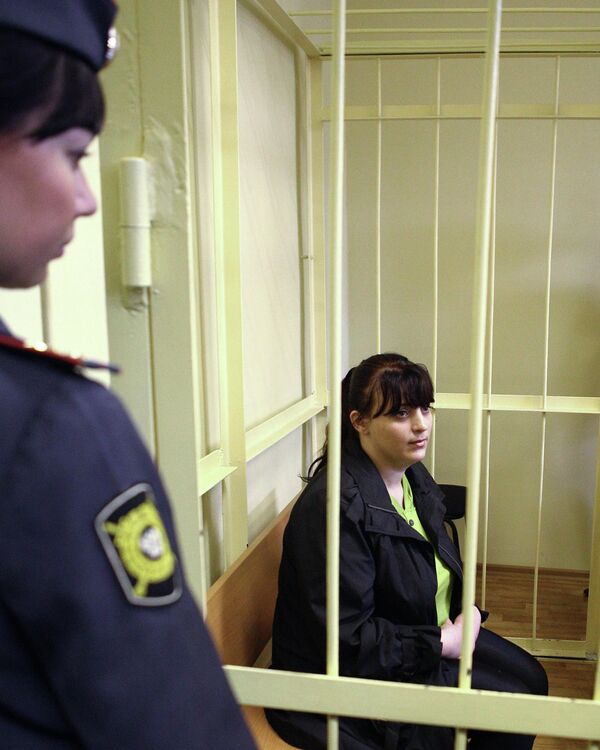Russian human rights figures on Tuesday condemned an eight-year prison sentence for opposition activist Taisiya Osipova as disproportionate and inhumane while some said it was a frame-up.
Earlier in the day a regional court in Smolensk sentenced Osipova to eight years on drug possession charges. Osipova, an activist for the Other Russia party, is to serve her sentence in a low security prison colony.
Veteran human rights leader Lyudmila Alexeyeva, who is head of the Moscow Helsinki Group, said it was a rare case when a court delivered a harsher sentence than requested by prosecutors.
“The case was clearly fabricated,” she said in an interview with RIA Novosti.
Her view was shared by Alexander Brod, director of the Moscow Human Rights Bureau.
“It’s stunning the way the judge and the prosecutor swapped places,” he said, noting that Osipova was being persecuted for her civic activism.
He also slammed the investigation and the trial as “unscrupulous” since many circumstances were ignored, witnesses not questioned and evidence against Osipova not verified.
Maria Kannabikh, a member of the Public Chamber, said the sentence was too long and that eight years would do nothing to “reform a person” and could even destroy “a woman’s personality.”
Members of the ruling United Russia party, however, upheld the verdict, dismissing the claims that it was politically motivated.
Alexander Remezkov, deputy head of the State Duma Legislation Committee, said the sentence could be appealed but it was wrong to obfuscate “drug dealings” by citing “some political motives.”
“Some people will always be unhappy,” he said.
Irina Yarovaya, head of the State Duma Security and Anti-Corruption Committee, said the case was clearly criminal and not political.
“I am sure that the parents of the young people whom Osipova sold heroin could not care less what kind of activist she is,” Yarovaya said.
Osipova’s defense team said they will appeal the verdict and press for her full acquittal, her lawyer Svetlana Sidorkina said.
The court excluded the search of Osipova’s apartment from consideration, leaving only two episodes - two “sting operations,” Sidorkina said, adding that they were absolutely illegal.
“We will insist that the two witnesses, as well as operatives and ‘buyer’ were persons with an interest at stake,” she said.
Osipova, 28, was arrested in 2010 and imprisoned for ten years late last year after police found four grams of heroin at her home in the west Russian city of Smolensk. Osipova said the drugs were planted on her by officers after she refused to provide them with information on her husband, Sergei Fomchenkov, an activist with the unregistered Other Russia opposition party.
Osipova is the mother of a five-year-old child and suffers from diabetes. Her sentence was overturned on appeal in February after then President Dmitry Medvedev called it “overly harsh,” and called for a new probe. The court refused, however, to free Osipova on bail.
Osipova has been politically active since the early 2000s, when she was a member of radical writer and politician Eduard Limonov’s now-outlawed National Bolshevik Party. Limonov is now head of the Other Russia party.
Osipova received a boost in her bid for freedom earlier this week when the court ruled to consider a statement by a witness that the drugs were planted on her. Witness Anton Mandrik's evidence was allowed after he passed a lie-detector test. He told the court he had received threats from police not to testify.


